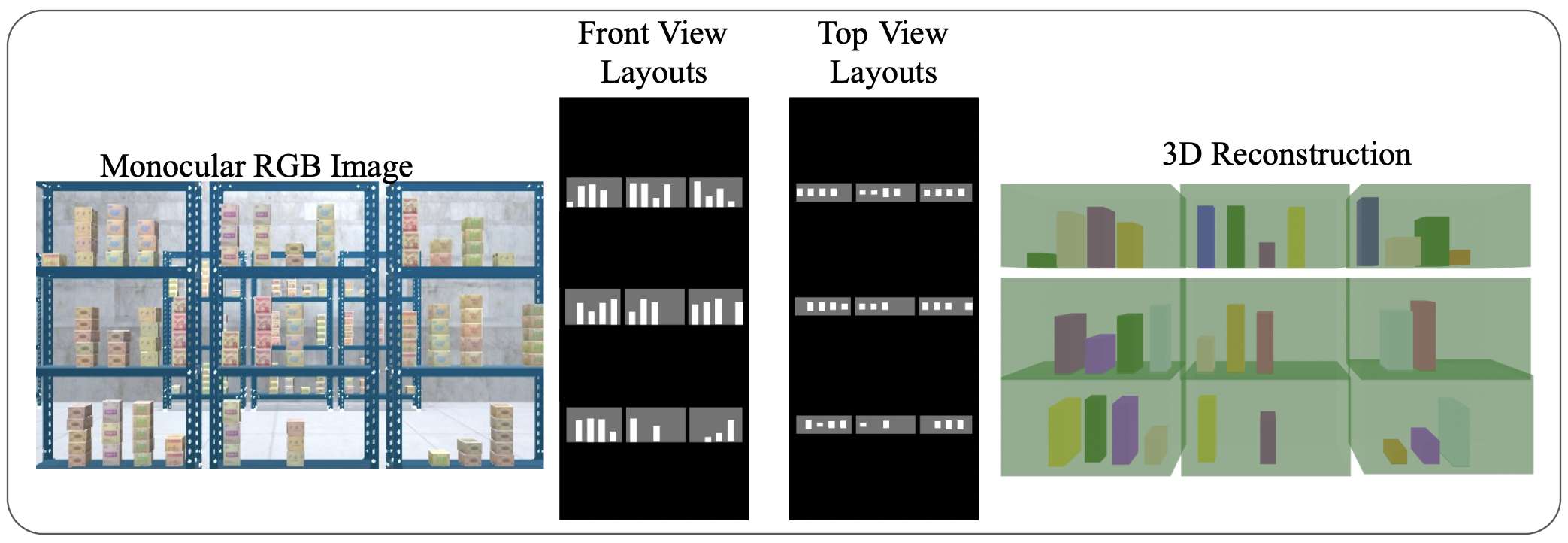Pranjali Pathre, Anurag Sahu, Ashwin Rao, Avinash Prabhu, Meher Shashwat Nigam, Tanvi Karandikar, Harit Pandya, and K. Madhava Krishna
├── data # Store the *MVRackLay* data or custom data using *WareSynth* here.
├── racklay
│ ├── dataloader.py # Reading the data from the dataset and preparing it for training
│ ├── datasets.py
│ ├── __init__.py
│ ├── model.py
│ └── resnet_encoder.py
│ ├── convlstm.py
│ ├── videolayout.py
├── splits
│ └── warehouse
│ ├── train_temporal_files.txt # Indices to files from the dataset used for training
│ └── val_temporal_files.txt # Indices to files from the dataset used for validation
├── eval_vracklay.py # Get metrics (mIOU and mAP)
├── train.py
└── utils.py
We recommend setting up a Python 3.7 Virtual Environment and installing all the dependencies listed in the requirements file.
git clone https: https://github.com/pranjali-pathre/MVRackLay
cd MVRackLay
pip install -r requirements.txt
Example code for training MVRacklay is provided below.
python train.py
--model_name videolayout
--seq_len 4 --type both
--batch_size 2
--num_epochs 73
--split warehouse
--data_path ./data/afinalData/
--num_racks 3
--log_frequency 3
--occ_map_size 512
For evaluating a trained model use eval.py by specifying the mode used for training, the data split on which to evaluate as well as the path to the trained model directory.
python eval_vracklay.py
--pretrained_path ./models/videolayout/warehouse/weights_72/
--split warehouse
--seq_len 4
--type <both/topview/frontview>
--num_racks 3
--occ_map_size 512
